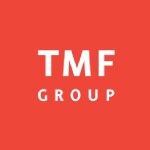VAT law comes into force in Oman from April 2021 following Royal Decree No. 121/2020.
The country will apply VAT at the standard rate of 5%. Oman becomes the fourth Gulf Cooperation Council (GCC) member state to implement VAT, following the UAE, Kingdom of Saudi Arabia and Bahrain.
What does it mean for businesses in Oman?
If taxable supplies by a business resident in Oman exceed the mandatory registration threshold either:
In the month in which the VAT law has been released plus 11 months preceding that month; or
In the month in which the VAT law has been released plus 11 months succeeding that month, the business should be ready to VAT-register as soon as the registration deadline is announced by the OTA.
The 5% VAT rate covers the supply of all goods and services in Oman, except for certain exempted categories and cases.
Zero-rated categories
The following categories will be concerned:
Certain food items that will be stipulated in a separate ministerial decision;
Medicines and medical equipment;
Investment gold, silver and platinum;
International or intra-GCC transport of goods, passengers and related services;
Supply of aircraft or vessels designated for rescue and assistance by air or sea;
Crude oil, oil derivatives and natural gas;
Export goods and services as well as the re-export of temporary imported goods;
Supply of air, sea and land means of transport for the transportation of passengers and goods for commercial purposes and related services; and the
Supply goods or services in suspension positions under the GCC unified customs law.
The following business categories will be exempt from VAT in the country:
Financial services;
The supply of preventive and healthcare services and associated goods and services;
The supply of educational services and related goods and services;
The supply of peer land;
Resale of residential buildings;
Local transportation;
Supply of residential buildings by renting;
Importation of goods, if the final destination country is exempt from VAT or subject to a zero-rate;
Diplomatic, international institutions;
Goods and services for military services;
Imports of personal items and gifts carried in travellers’ personal luggage and with foreign people coming to Oman for the first time;
Supplies for non-profitable charitable societies; and
Returned imported goods.
Record-keeping and filing obligations
VAT returns must be filed with the tax authority electronically. It is expected that the VAT period will be a minimum of one month, and VAT payments and returns should be filed within 30 days of the end of the tax period.
Transactions with non-VAT-implementing GCC states will be treated the same as transactions with non-GCC states.
Penalties for non-compliance with VAT in Oman
Persons failing to register within the required period or providing incorrect information face prison for between one and three years and will be penalised a maximum OMR 20,000 ($51,952).
Persons failing to submit a VAT return within the required period will face prison for between two months and one year and will be penalised a maximum OMR 10,000.
Akram Ragaa Mostafa












